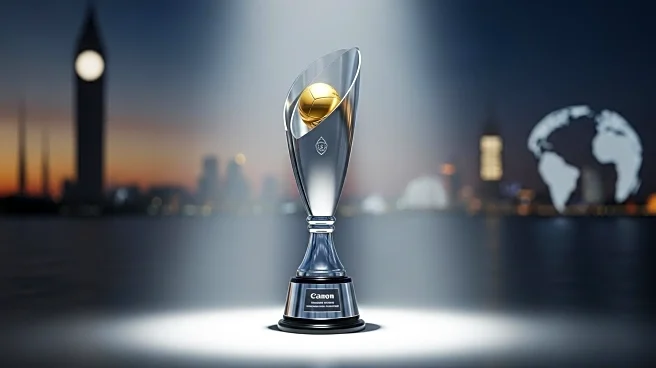What's Happening?
Kazakh football club Kairat Almaty is set to embark on a record-breaking journey in their maiden UEFA Champions League campaign. The team will travel nearly 45,000 kilometers, surpassing a full lap around the Earth, as they compete in the group stage. Their qualification was secured after a victory against Celtic, leading to a draw that placed them in a group with Real Madrid, Club Brugge, Olympiacos, and Pafos. The away matches will take them to Inter Milan, Arsenal, Sporting Portugal, and FC Copenhagen, with the longest single journey being a 6,908 km round trip to Lisbon. This extensive travel schedule is unprecedented in European competitions.
Why It's Important?
The extensive travel required for Kairat Almaty's Champions League participation highlights the logistical challenges faced by teams from geographically distant regions. This situation underscores the financial and physical demands on players and staff, potentially impacting performance due to travel fatigue. The club's participation also brings significant attention to Kazakh football, offering exposure on a global stage and the opportunity to compete against some of Europe's top teams. Success in this campaign could enhance the club's reputation and attract further investment in Kazakh football.
What's Next?
Kairat Almaty will need to manage the challenges of their travel schedule while preparing for high-stakes matches against some of Europe's elite clubs. The team's performance in these games will be closely watched, as it could influence future participation in international competitions. Additionally, the club's management may explore strategies to mitigate travel fatigue, such as optimizing travel logistics and recovery protocols. The outcomes of these matches could also impact the club's standing in the international football community.
Beyond the Headlines
This development raises questions about the fairness and feasibility of current competition structures for geographically isolated teams. It may prompt discussions within UEFA about potential adjustments to group stage allocations or travel support for teams facing similar challenges. The situation also highlights the broader issue of balancing competitive integrity with logistical realities in international sports.









